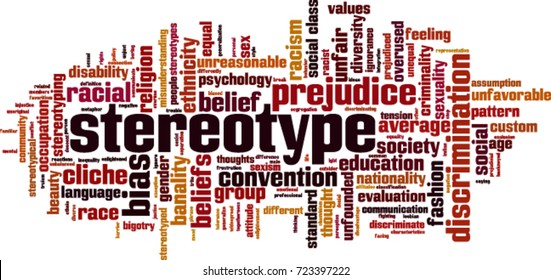What is a stereotype in linguistics and sociology?
Hi! As you know stereotypes surround us in all areas of life. We can find them in literature, in mass media. Even in iconography we can look for stereotypes, because how to present a Frenchman in a different way from that of a man wearing a striped blouse, with a beret on his head, with a curly mustache and a baguette under his arm ? But to fully understand them, we first need to know what a stereotype is. Before I go to show you the multiple sterotypes about the French and Poles, today I will briefly explain what a stereotype is - such a short definition. 😊
Walter Lippmann was the person who in 1922, in his work Public Opinion, introduced the concept of the stereotype as "images in our heads […] of simplified descriptive categories by which we seek to situate others or groups of individuals."But the most popular definitions are that of psychology and sociology - according to these fields, these are opinions invented by each of us without being subjected to verification and transmitted to the general culture, repeated without reflection. We treat them as negative images of certain communities that are too different from others, or those that we are afraid of or are afraid to meet. We cannot ignore the fact that stereotypes are not always negative, because there are also those that are positive. One of the hallmarks of the stereotype is that it is often considered the most real, despite the fact that it often turns out to be not - it is usually completely inaccurate and false or only partially conforms to the facts. We must emphasize that the vast majority of stereotypes are common opinions, stemming from the tradition, of our ancestors, which have existed in our culture for years and are passed down from generation to generation. They tend to stay the same for a long time.
Here are short definitions of the stereotype that I have prepared for you. Next time, I will briefly show you what is the specific stereotype which is the one relating to the entire population of a given country - the national stereotype.

Comments
Post a Comment